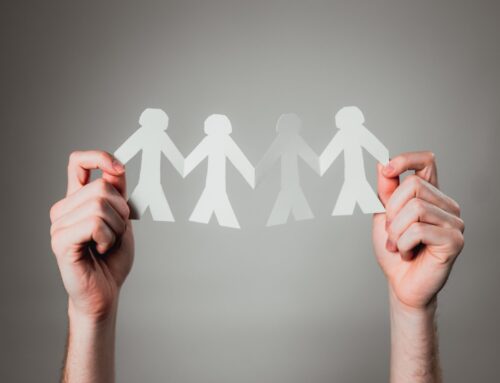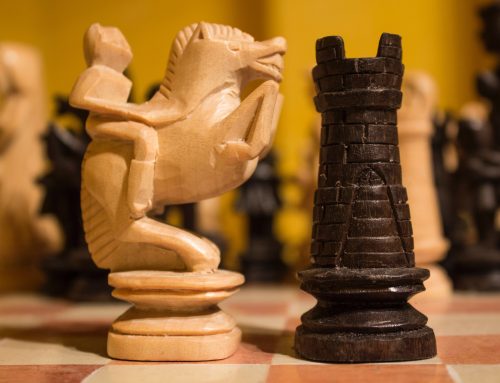I haven’t posted for a while.
My dad—stepdad actually—Geddes Phillips died.
Pancreatic cancer.
He was diagnosed in mid-December and he took his last breath at 8:30 on April 8th, 2011.
He was a great guy and I loved him dearly. He fought valiantly right up to the end, but it was too much for him. It hurt to see him struggling for each breath, and it was clearly better for him to have passed on when he did.
This was the first time in my life that I’ve ever lost anyone and the experience has changed me in some way that I can’t quite put my finger on yet, but I know that I am somehow a different person.
Perhaps it’s just that some things are clearer to me now.
Life is fragile
My dad was a mighty man. For most of his life he was a health buff. A bodybuilder who watched what he ate, took his vitamins and nutritional supplements and worked out three or four days a week.
As a kid I watched him benchpress almost three hundred pounds on a regular basis, and I marveled at the huge veins that bulged from beneath his forearms.
In the end the doctors couldn’t find any veins in his arms and he lay feebly in his bed gasping for air.
It made me think how arrogant it is to take your health for granted, to think that you are invincible and that you can eat or drink what you want with impunity.
It also made me think that even when you do take your health seriously that your body will break down in the end. I’ve had several friends in their 40’s and 50’s who have recently dealt with or are currently dealing with cancer. Then there are accidents that can claim your life or leave you physically or mentally challenged in some way.
I promise not to end as a downer, I just want to say that life is fragile, and we all are marching inexorably towards old and age and death.
How I would want to go
Watching my dad decline made me think about this question, “How do I want to die?”I know people who have lost a parent suddenly. In most cases it was to a massive heart attack but I even know of a case where the father was murdered.
Then there are the cases like my dad, where the parent suffered for some period of time before they passed.
Which do you prefer?
“I want to die in my sleep like my grandfather … not screaming and yelling like the passengers in his car.” Unknown
I kind of like the way Marlon Brando’s character died in the GodFather. There was a brief moment of pain and distress but then he was gone.
I think I would prefer that to what most people choose—passing in their sleep—because I think I would want to know it’s happening.
Perhaps I’m just a control freak. I would want to be conscious of the transition rather than waking up dead.
Seems kind of a shame to dread a moment for your entire life and then have it be a non-event by sleeping through it.
Excitement and wonder even at the end, that’s what I want.
Being at peace with death
Knowing that you have a terminal disease has perhaps one good thing about it, and that is that you have a chance to complete things. You have a chance to say goodbye to loved ones, you have a chance to put things right, to apologize for hurts that you caused, and you have a chance to hear what people thought of you.
My dad knew he was loved when he died. People came to his bedside, or called him to let him know. There was nothing he needed to say or apologize for. He knew he was loved, really loved, and I think that must have brought him more than comfort, it must have brought him peace.
Practice being complete
Which makes me think of being complete with the people in your life, of having a practice of making sure that you’re good with the people that matter and that they are good with you.
The fact is that you never know when you’ll go.
You could get hit by a bus, swept away by a Tsunami, or fall off your step-ladder right into the path of a ceiling fan set to high speed (yes it’s happened).
You shouldn’t have to know you’re going to die to say whatever it is you need to say to the people in your life.
Learn to say the important things to people in your life. Thank them, apologize, learn to listen for what it’s like to be them, and ask how you can help. When you’re on your deathbed it will be too late.
Being alone at the moment you die
George Clooney’s character in “Up in the air,” said that we all die alone.
I’m not sure that’s true. Technically, I guess that you must die alone but I would like to think that having the people that you care about around you is better than dying alone.
I can imagine that if you’re in horrible pain you won’t care if you’re alone or not.
But if you’re having one of those Hollywood type last moments, meaning that you’re not in any excruciating pain, you’re conscious but your body is failing; that having people especially people that care about you nearby makes the experience somehow beautiful.
Odd word to use: beautiful. But when all that needed to be said, has been said, everything is complete and you know that you are loved, there is something beautiful about the moments before dying.
My dad had his soulmate and his daughter at his side when he died, and I’d like to think that gave him comfort. He knew that he wasn’t alone.
The world won’t remember your name
More than anything else, my dad’s passing made me realize how insignificant most human lives are. Only a very small group of people will miss us when we’re gone, and when they’re gone, we’ll be a footnote in a family tree.
“I am convinced that it is not the fear of death, of our lives ending that haunts our sleep so much as the fear… that as far as the world is concerned, we might as well never have lived.” Harold Kushner
That’s been a humbling realization for me. To know that I won’t leave a mark on history or be remembered beyond a couple generations by a very, very few people … if I’m lucky.
All of a sudden, I want to be remembered, I want to be missed, I want to have people say great things about me long after I’ve gone. But that would require my doing something big, something that would be “change the course of history” big.
Possible, but not likely. So where does that leave me? Give up and look for some peace in historical insignificance or think big?
The answer is both. Once I set my sites lower than Jesus, there are things that I could leave behind, books, innovations, new ideas that could be associated with me and have my name live on.
… but you may impact history nevertheless
On the other hand, we can’t all make big historical changes in the course of our lifetime. It doesn’t work that way. It can’t. A steady course, gradual changes should be the order of the day.
That’s what makes the big events, and abrupt changes noticeable.
Most of us won’t be remembered in the books of history, but that doesn’t mean that our life didn’t have meaning or that we didn’t contribute in some meaningful way to the progress of humanity.
Edison may be remembered for the light bulb and other scientific achievements that have bettered all of mankind, but what of the teacher that influenced him to study science, or the doctor that saved his life, or the Uncle that planted the seed of making a difference in his mind.
What about the books that he read that influenced what he believed and thought possible? What if those authors never wrote those books?
Every great person had a whole series of subtle, unremarkable but deeply significant events/influences that molded their lives. Remove even one of those influences and they may never have achieved their greatness.
My dad impacted many lives
Geddes Phillips profoundly impacted many lives. He may not go down in the history books, and his name may not ever be a question on his beloved Jeopardy, but it is very possible that he touched one or more lives that will go on to produce greatness in this world.
Sometimes recognition is not important
Great leaders don’t care where the credit goes, only that what’s worthy of credit gets done. I think Geddes was that kind of person, that kind of leader. He wouldn’t have cared that his name is not mentioned. He would only care that he made a difference and that he touched lives.
And he most certainly did.
This is the real lesson that I will take from his passing.
It’s more important to touch individual lives, to help people. For it’s in the touching of individual lives that true greatness is affected.
“Immortality lies not in the things you leave behind, but in the people your life has touched.” Unknown







Peter, A great tribute to a great man.
Tom
God bless him and may he rest in peace.
Thank you for sharing that post. It was moving and powerful. Got something from it, especially “…learn to listen for what it’s like to be them, and ask how you can help.”
Will share it.
Peter.
My condolences.
When my Mom “transitioned” a few short years ago, my inner voice called for her to last just a little longer. Though I was complete during many of my bedside chats with her, as she laid comatose,the squeezes of her hand in mine told me that she got all what I was saying, and all I didn’t say too. If only I could’ve spoken to her eyes.
But what I got solace in was a voice from her quiet speak, I that she was transitioning only to continue her contribution to Creation, and not dying to end it all. She had said so in several ways before her task was made complete… with all (eleven) of us celebrating/commemorating her strength and Faith.
Who is to know what our actual beginnings in this Life really looked like; outside the Physical realm. And what new beginnings are we or about to be.
I say all of that to let you know how I join you in commemorating/BEing with your Dad’s transition/passing. His greatness, I hold, not as one of grandest impact in this mundane world, but as the gift he was to all who knew him, consciously/consciously creating Love, Joy and Peace in Creation; one breath at a time.
Blessings Brother.
Colly.
“Great leaders don’t care where the credit goes, only that what’s worthy of credit gets done. I think Geddes was that kind of person, that kind of leader. He wouldn’t have cared that his name is not mentioned. He would only care that he made a difference and that he touched lives.” That’s the thing, transcending ego, not bothering to get the credit!! yes indeed, we all play our role, we all make our own contribution, we all do what we can whether big or small and that is good, that is enough. Together we function as a team….i once marvelled at a man in a tv programm who was speaking about his job which was to unclog toilets and this he had been doing all his life with passion and dedication! That is beautiful!! o and Peter when i see how many people send you their support and love and birthday greetings i am sure your funeral will take three days, lol.
[…] lost my step-dad in April this year, and I find myself thinking of him at unpredictable moments. I realize that I really miss the […]
[…] my dad was in the hospital, I had an opportunity to observe the different styles of doctors. They ran all the way from aloof […]
[…] to Esther, my profound condolences to you. My mother and I are still in the impact of losing a great man from our lives, so I can imagine what it must be like for you. I wish you strength and love […]